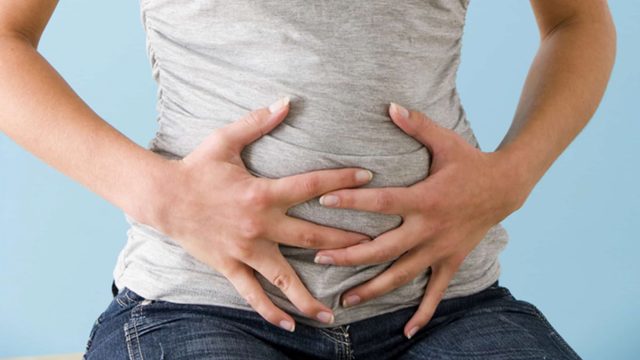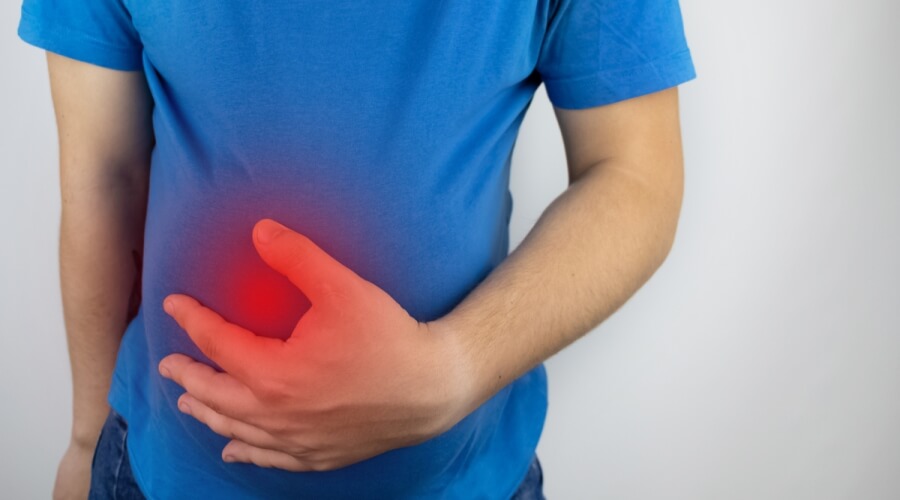Cleaning the stomach from unpleasant gases
Effective ways to clean the stomach of unpleasant gases have been revealed, thanks to some healthy habits and proper nutrition. Cleansing the abdomen is necessary to maintain the health of the digestive system and get rid of unwanted moods.
One of the most important things that experts advise is to exercise regularly. Exercise helps relax the intestinal muscles, which contributes to alleviating gas and bloating in the abdomen.
It has also been shown that some foodstuffs have a positive effect in cleaning the abdomen of unpleasant gases. For example, turmeric is considered an effective spice that reduces the accumulation of gases in the abdomen, as it contains curcumin, which helps calm the digestive system.
Cumin seeds can also be used to get rid of annoying gases in the abdomen, as they contain anti-inflammatory properties and maintain the health of the digestive system.
In addition, clove oil is an effective ingredient in cleansing the colon and abdomen of unpleasant gases. It has been used to treat abdominal pain and gas, and it is recommended to be added to daily meals to enhance the effectiveness of the cleansing.
Therefore, it is recommended to practice these healthy habits and include them in your daily routine to clean the stomach of unpleasant gases and maintain the health of the digestive system. It is also necessary to take into account the intake of sufficient amounts of water daily to improve colon functions and get rid of problems associated with the abdomen and gases.

What indicates the abundance of gases in the abdomen?
Excessive gas in the abdomen is a natural phenomenon that may depend on the person’s eating habits and lifestyle. Eating certain foods such as beans, milk, and complex carbohydrates may cause gas to form within the digestive system. In addition, fast eating habits, eating food quickly or chewing it insufficiently can cause air to build up in the abdomen.
However, there may be other causes of excessive abdominal gas, including:
- Digestive diseases: such as irritable bowel syndrome, ulcerative colitis, and chronic enteritis.
- Endothelial cyst of the intestine (IBS): This is a chronic condition that causes changes in bowel function and causes bloating and excessive gas.
- Digestive surgery: Some surgical procedures such as cholecystectomy or stricture in the intestine can lead to the accumulation of gas in the abdomen.
- Other medical condition: such as chronic hepatitis, cholecystitis, and gallbladder obstruction.
It is worth noting that if excessive gases in the abdomen continue to occur or disturbing symptoms such as persistent pain and bloating occur, it is advisable to consult a doctor. The doctor can provide the necessary tests and diagnosis to ensure that there are no other medical causes behind this condition.
How clean the colon of toxins and feces?
Before we discuss the different methods, we must mention that it is best to consult a doctor before performing any colon cleansing procedure. The doctor will be best able to evaluate your health condition and determine the best method for colon cleansing based on your specific needs.
One of the common methods of colon cleansing is aqueous voiding, commonly known as rectal catheterization. During this process, a quantity of warm water is introduced into the colon through the anus, and then it is extracted with waste and toxins. This procedure helps clean and rid the colon of accumulated stool and accumulated toxins.
There are also other ways to clean the colon and improve its health, which is to adhere to a healthy diet rich in fiber. Eating leafy vegetables, fruits, and whole grains strengthens the colon muscles and stimulates the elimination of waste naturally.
In addition, supplements containing natural laxatives such as flax seeds, aloe vera, and artichoke peel can be used. These supplements stimulate bowel movement and avoid constipation.

What is the cause of bad gas smell?
- Digestion process: When you eat food, it is digested in the digestive system through the process of breaking down food and absorbing nutrients. During this process, intestinal bacteria release gases to get rid of food waste. These gases can produce unpleasant odors.
- Inflammation of the intestine: Inflammation of the intestine may occur as a result of digestive disorders or certain health problems, such as colitis. In the case of intestinal inflammation, gases can accumulate and cause unpleasant odors.
- Eating certain foods: There are some foods that contain compounds that cause unpleasant odors when digested, such as legumes, garlic, onions, and strong spices. After digesting these foods, the body releases unpleasant gases as part of the digestion process.
- Incomplete absorption of nutrients: In some cases, some nutrients may not be completely absorbed in the digestive system, causing them to ferment and produce unpleasant gases.
What is the drink that expels gases from the stomach?
Many people suffer from the problem of excess gas in the abdomen, which is uncomfortable and may cause a lot of inconvenience. In order to get rid of this problem, many people search for drinks that help calm the stomach and expel gases.
Among those drinks that relieve gas in the stomach, warm water stands out prominently. Drinking a cup of warm water can provide quick relief and help soothe the digestive system. It is preferable to drink warm water before meals to achieve maximum benefit.
In addition, there are a number of other drinks that can be effective in getting rid of annoying gas. For example, ginger tea is a popular drink for its digestive benefits. Ginger contains natural compounds that help calm the stomach, improve digestion, and expel gas.
As for plant-based drinks, papaya and pineapple juices may also promote digestion and improve bowel movements. These fresh fruits contain digestive enzymes that help break down heavy foods, soothe the stomach, and get rid of gas.
But we have to remember that each person responds differently to different drinks. Some people may need to try several drinks before finding what works best for them. If the problem persists and worsens, it is best to consult a doctor to evaluate the condition and provide professional medical advice.

Is excessive gas harmful?
Excessive gas in the colon causes a lot of discomfort and embarrassment for people who suffer from it. Gases result from an abnormal accumulation of air in the digestive tract, which may arise from eating some foods that cause gases, such as beans, milk, and other legumes. Although it is generally harmless and temporary, some severe cases may cause pain, bloating, and abdominal cramps that may affect the quality of daily life. Therefore, appropriate treatment and an appropriate dietary pattern can help reduce gas formation and reduce unwanted symptoms. It is necessary to consult a doctor to determine the causes and appropriate treatment that suits each case.
Do worms cause stomach gas?
There are many possible causes for the appearance of abdominal gas, and among these natural causes are intestinal bacteria, stress, the desire to cry, and eating foods that cause gas. But could worms be another cause of this annoying problem? This is what we are trying to find out in this report.
According to experts in the field of medicine and health, parasitic worms are not among the common causes of flatulence. Helminths are small parasites that live in the intestines and derive their energy from them. And although its presence can cause some symptoms, gas formation is not one of them.
Parasitic worms can have other symptoms such as insomnia, uncomfortable sleep, open appetite, weight loss, constipation or diarrhea. However, if these symptoms appear, it is best for the patient to contact a healthcare provider to diagnose the condition and rule out any other possible causes.
To prevent helminth infections and protect your health, it is recommended to follow good hygiene practices such as washing hands regularly, cooking meat and fish well, and avoiding eating unclean or undercooked food.
Does anise help get rid of gas?
When it comes to annoying intestinal gas, there are several natural remedies that can be helpful. One of these treatments is the use of anise. Anise is believed to contain compounds that help soothe the digestive system and reduce gas formation.
Anise is known for its many benefits, whether in treating digestive problems or relieving symptoms associated with gas. This plant contains volatile oils that enhance the digestion process, soothe bloating and relieve cramps associated with gas.
There are several ways to benefit from the properties of anise as an intestinal gas reliever. One of these ways is to consume anise in the form of tea. The dried seeds can be boiled in boiling water for a warm, soothing flavour. Anise can also be mixed with warm water and a little honey to enhance its effect.
In addition to taking anise orally, anise oil can be used for massage. Massaging the abdomen with anise oil can supposedly relieve flatulence and help speed up digestion.
There is no doubt that anise is a natural supplement known for its benefits in relieving intestinal gas. However, it is best to consult a doctor before using any type of physical therapy, to ensure safety and to ensure that there are no interactions with other medications that may be taken.
Does Pepsi help expel gases?
Some rumors suggest that drinking Pepsi can help expel gases from the body. However, the reality differs from these assumptions.
These rumors began to spread on social media, claiming that drinking Pepsi is an effective cure for gas and helps soothe feelings of bloating and bloating in the abdomen. However, these claims lack any solid scientific evidence.
While Pepsi contains carbon dioxide, which is a gas, it cannot affect the gases in the intestines. The cola phosphoric acid found in Pepsi can contribute to some people's nausea or bloating, but it does not affect the removal of gases in the body.
To get rid of gas, there are some practical tips that can be followed. This can include avoiding eating foods known to increase gas such as beans, cabbage, and collard greens. In addition, it may be appropriate to get some regular exercise and drink enough water to help support healthy digestion.
Does lemon help get rid of gas?
Lemon is one of the favorite natural solutions to get rid of intestinal gas. Lemon is rich in antioxidants and vitamin C. These components enhance the digestion process and help remove gases accumulated in the digestive system and intestines.
Studies show that drinking lemon juice before a meal can help stimulate intestinal secretions and improve digestion. Drinking a cup of warm water mixed with lemon juice on an empty stomach in the morning is also a common practice in cleaning the body and promoting digestive health.
In addition, lemon essential oil is considered one of the traditional remedies for intestinal gas. Lemon essential oil can be used with a light massage on the abdomen to soothe tight intestinal muscles and improve digestion.
